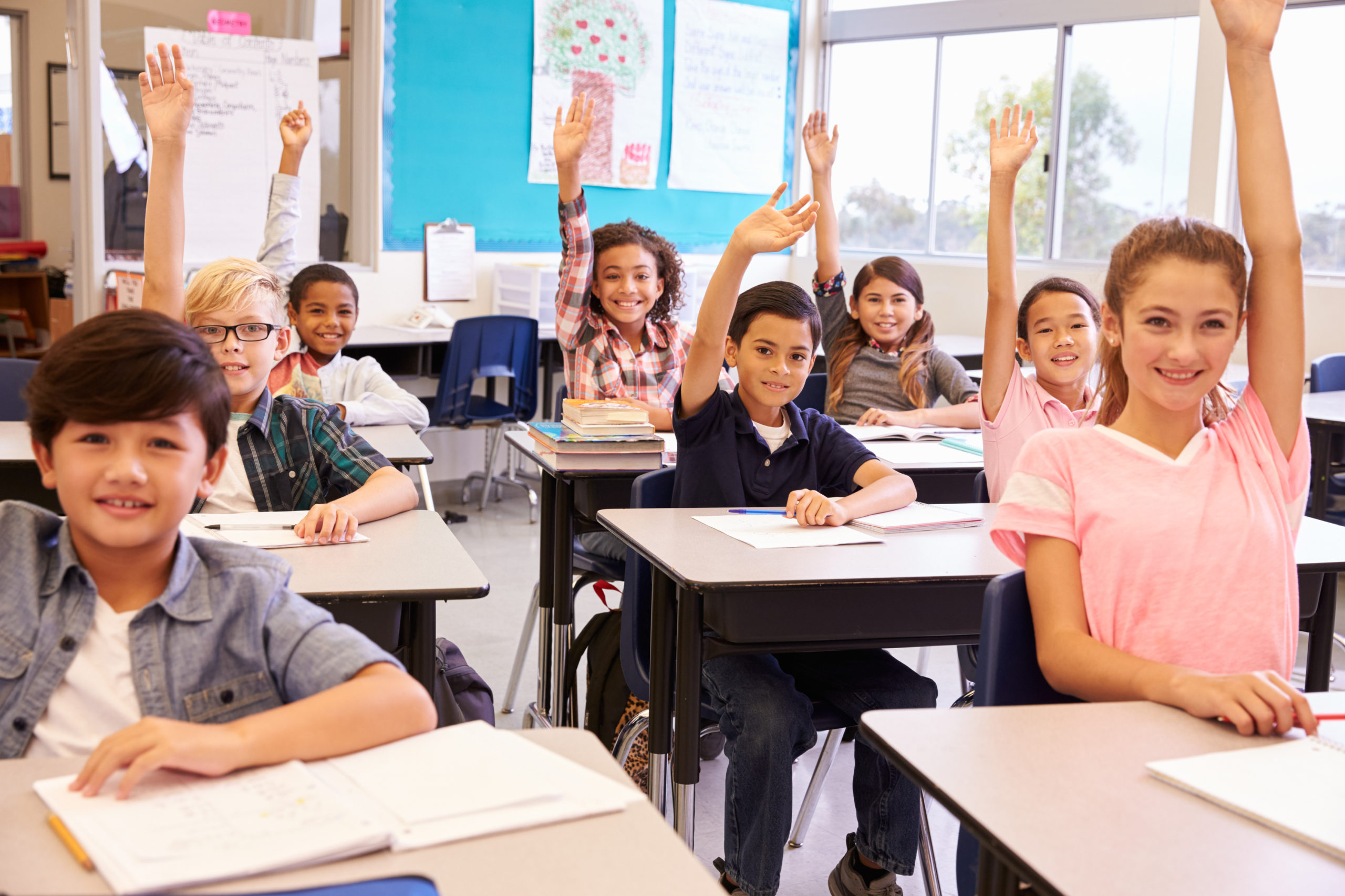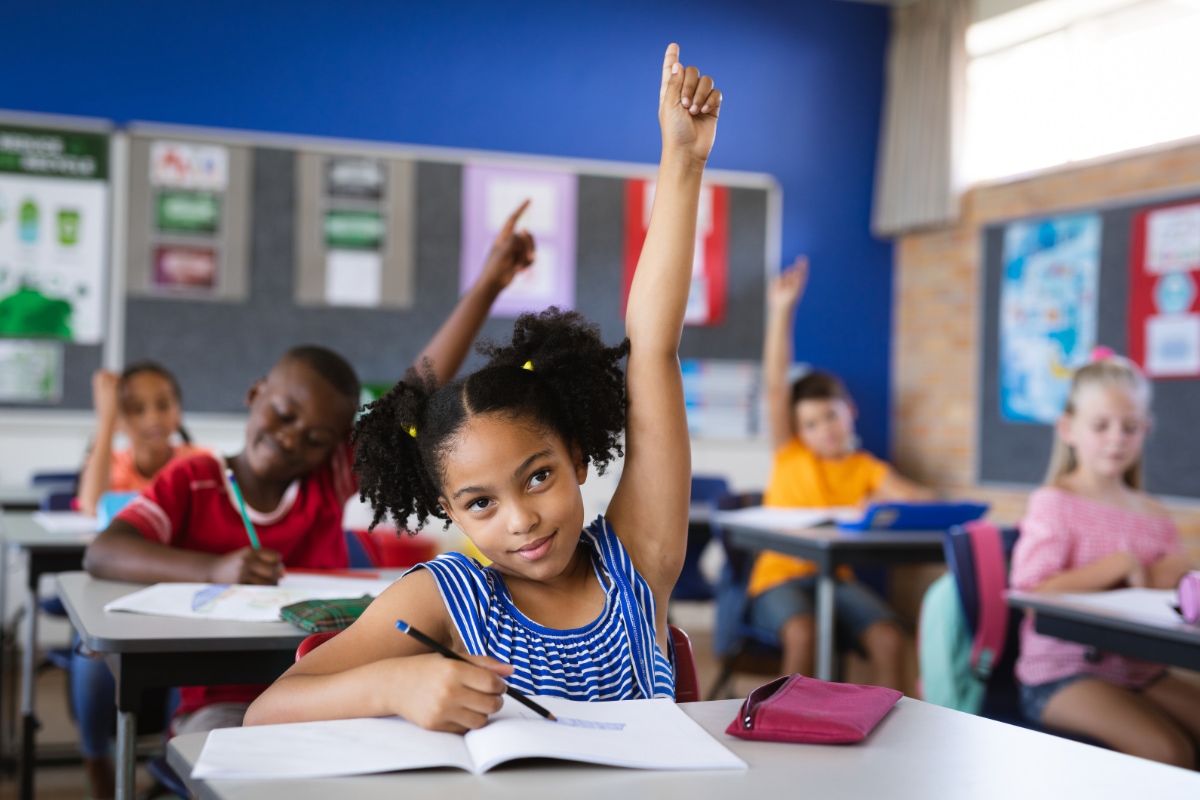Understanding the Significance of Institutions in Youngster Advancement and Community Development
Colleges' engagement with local neighborhoods with service-learning campaigns reinforces the bond in between family members and instructional establishments. This symbiotic relationship emphasizes the significance of schools in nurturing active citizenship and long-lasting understanding practices.
Academic Achievement
Academic accomplishment serves as a cornerstone of youngster growth, supplying the structure whereupon future understanding and success are developed. Institutions play a critical function in fostering this scholastic growth, using structured settings where kids can get essential knowledge and cognitive abilities. Standardized curricula make certain that trainees gain proficiency in core subjects such as mathematics, science, and language arts, which are essential for both college and expert possibilities.
In enhancement to giving fundamental scholastic abilities, institutions additionally cultivate crucial reasoning, analytical abilities, and intellectual interest. These cognitive expertises are vital for browsing intricate real-world scenarios and adapting to the ever-evolving needs of the modern-day office. Teachers, as facilitators of learning, use varied pedagogical approaches to provide to diverse learning designs, consequently making best use of private pupil capacity.
Furthermore, scholastic success is closely linked to self-worth and motivation. Youngsters that experience academic accomplishments are more probable to create a positive self-concept and a long-lasting interest for learning. Colleges also use different resources, such as libraries and innovation, which further enhance the academic experience and prepare students for a technologically innovative culture.
Social Ability Growth
Beyond academic accomplishment, the function of schools in social ability growth is essential. Schools function as a key venue for children to learn and exercise vital social skills such as dispute, interaction, and participation resolution. In the organized atmosphere of a classroom, students communicate with peers, teachers, and other school staff, offering countless possibilities to establish these important capabilities.
Efficient social skill development in schools is facilitated via team activities, collaborative tasks, and extracurricular programs. These communications assist trainees understand social standards, develop empathy, and foster a feeling of neighborhood. For example, team jobs show trainees just how to collaborate towards a common objective, pay attention to various perspectives, and navigate arguments constructively.

The cultivation of social abilities during academic year lays a structure for future individual and specialist relationships. Save Temecula Schools. As trainees grow, the ability to efficiently communicate and team up ends up being progressively essential, underscoring the school's vital duty in alternative youngster development
Exposure to Diversity
Exposure to variety in schools is fundamental to promoting a comprehensive state of mind and widening students' perspectives. Schools function as a microcosm of the broader culture, and coming across varied societies, languages, and socioeconomic histories within this atmosphere outfits pupils with important skills for browsing an increasingly globalized world. This exposure encourages compassion, minimizes bias, and advertises shared regard amongst peers.
Research study indicates that pupils that engage with peers from different histories display better analytic skills and creative thinking. This understanding of diversity prepares students for future offices that worth modern skills - Save Temecula Schools.
Area Involvement
The benefits of varied class prolong beyond the institution wall surfaces, promoting a solid feeling of area interaction among students. By communicating with peers from different cultural, socioeconomic, and ethnic histories, pupils obtain a broader perspective and an appreciation for variety. This direct exposure urges them to come to be energetic residents who are ready to add favorably to their areas.
Schools that emphasize community engagement commonly include service-learning tasks, which permit trainees to attend to real-world problems while using academic skills. These projects not just enhance students' understanding of their coursework yet additionally infuse a sense of obligation and compassion. Collaborations between colleges and regional companies give trainees with opportunities to take part in area events, additionally strengthening their function as proactive area participants - Save Temecula Schools.
Furthermore, adult and community involvement in schools strengthens the bond in between academic organizations and the neighborhoods they serve. Through these efforts, colleges play an essential role in supporting neighborhood engagement and fostering social development.
Lifelong Learning Practices
Developing long-lasting learning routines is vital for a child's continuous development and adaptability in an ever-changing world. Schools play a pivotal function in instilling these habits by creating a discover this setting that cultivates inquisitiveness, vital reasoning, and a love for knowledge. With extracurricular tasks and varied educational programs, instructors motivate trainees to check out different subjects, evaluate info critically, and apply their learning to real-world circumstances.

In addition, institutions provide an organized setting where youngsters can develop self-discipline and time management abilities, both of which are essential for constant knowing. By highlighting the value of establishing objectives, assessing progression, and adjusting approaches, educational organizations prepare trainees to navigate the complexities of adult life, guaranteeing they stay long-lasting learners and contributors to culture.
Verdict
In final thought, colleges are crucial in promoting child advancement and community growth by giving atmospheres favorable to academic success, social ability development, and direct exposure to variety. Inevitably, institutions cultivate long-lasting understanding habits, equipping individuals with the needed knowledge and skills to add positively to society.
In the structured setting of a classroom, students communicate with peers, teachers, and various other institution personnel, offering many chances to establish these essential capacities.
In significance, direct exposure to variety within schools not only improves specific students but also strengthens the social textile of the community as a whole.
The advantages of diverse class expand past the institution wall surfaces, promoting a solid feeling of neighborhood involvement among pupils.Colleges that look at here emphasize neighborhood involvement usually integrate service-learning tasks, which enable students to attend to real-world troubles while applying scholastic skills. Collaborations between colleges and check over here neighborhood companies supply pupils with chances to participate in neighborhood events, additionally strengthening their duty as proactive community members.